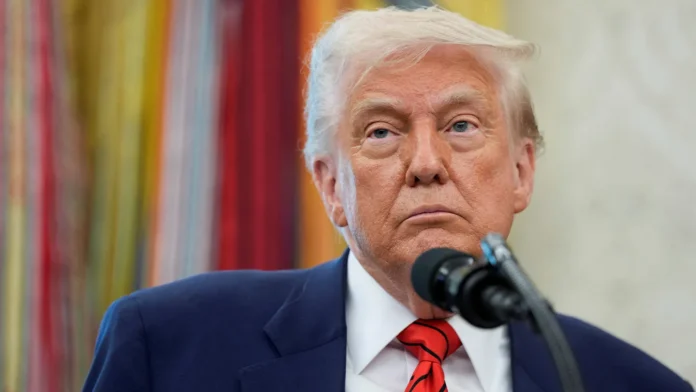If President Trump’s “big, beautiful bill” on the budget fails to pass, a study that the White House issued on Saturday estimates that 8.2 to 9.2 million more Americans might be uninsured due to the subsequent recession.
The discovery is based on a letter from the White House Council of Economic Advisers called “Health Insurance Opportunity Cost if 2025 Proposed Budget Reconciliation Bill Does Not Pass.”
According to the study’s assumptions, almost 27 million Americans lacked health insurance in the year 2025. The letter claims that if the budget measure fails to pass, the number of uninsured might rise to 36 million, which is much closer to the nearly 50 million who were uninsured before to the Affordable Care Act (ACA), better known as Obamacare, in 2010.
The document explains that the projection is “based on the assumption that states which expanded Medicaid with relatively generous eligibility will pull back to meet balanced budget requirements and try to provide more unemployment support during a severe recession.” In addition, the research states that it is based on the assumption of “no policy countermeasures,” which the White House calls a “very unlikely but plausible worse case” scenario. This qualifies its conclusions.
In 2026, when President Trump’s tax cuts from 2017 will expire, together with other shocks, the White House predicts a “moderate to severe recession.” Economists predict that a “major recession” would lead to fewer purchases by consumers due to higher taxes on individuals, fewer investments and jobs by small businesses due to higher taxes on individuals passed on to them, a drop in global confidence due to worries about the United States’ competitiveness and other factors, and higher real interest rates due to tighter credit and dollar deflation.
If the Trump tax cuts are not extended, the advisers’ “upper bound” projections indicate that the U.S. gross domestic product (GDP) may fall by around 4% over two years, a contraction comparable to the one that occurred in 2008. About 6.5 million jobs may be lost if the unemployment rate rises by four percentage points. The White House estimates that over 3.9 million individuals would lose their health insurance and end up uninsured due to the 6.5 million job losses, as 60% of those individuals had employer-sponsored insurance.
The letter also predicts that those without employer-sponsored insurance will be unable to afford to buy insurance on their own, leading to a decline in individual and marketplace coverage. almost 3.3 million people will lose health insurance in 2026, down from 22 million in 2026, according to the White House’s projections, a decline of almost 15%.
A 10% enrollment friction might occur for Medicaid and ACA subsidized plan enrollment without the passing of the “big, beautiful bill,” according to the document. This could lead to around 500,000 to 1 million individuals losing or failing to obtain coverage. The White House has stated that non-citizens, gig workers, and early retirees will be impacted the most when the tax cuts that Trump implemented in 2017 expire. There would be 500,000 to 1 million insurance losses among “vulnerable segments.” This is according to the consultants’ calculations, as those in the working classes without employer-sponsored insurance would be unable to buy coverage during a recession.
Even though Republicans are deeply divided, House Speaker Mike Johnson (R-La.) is working tirelessly to pass the “One Big Beautiful Act” by a self-imposed Memorial Day deadline. The Republicans’ control of the lower chamber is precariously balanced.
More than $5 trillion in tax cuts are included in the 1,116-page package, which would make the tax cuts from Trump’s first term permanent and would be partially offset by spending cutbacks elsewhere and other changes to the tax system.
Also included are several campaign promises that Trump kept, such as a temporary end to taxes on tips and overtime for many workers, a new tax break of $10,000 for interest on auto loans for American-made cars, and a new tax-free “MAGA account” that would give $1,000 to children born during his second term.
